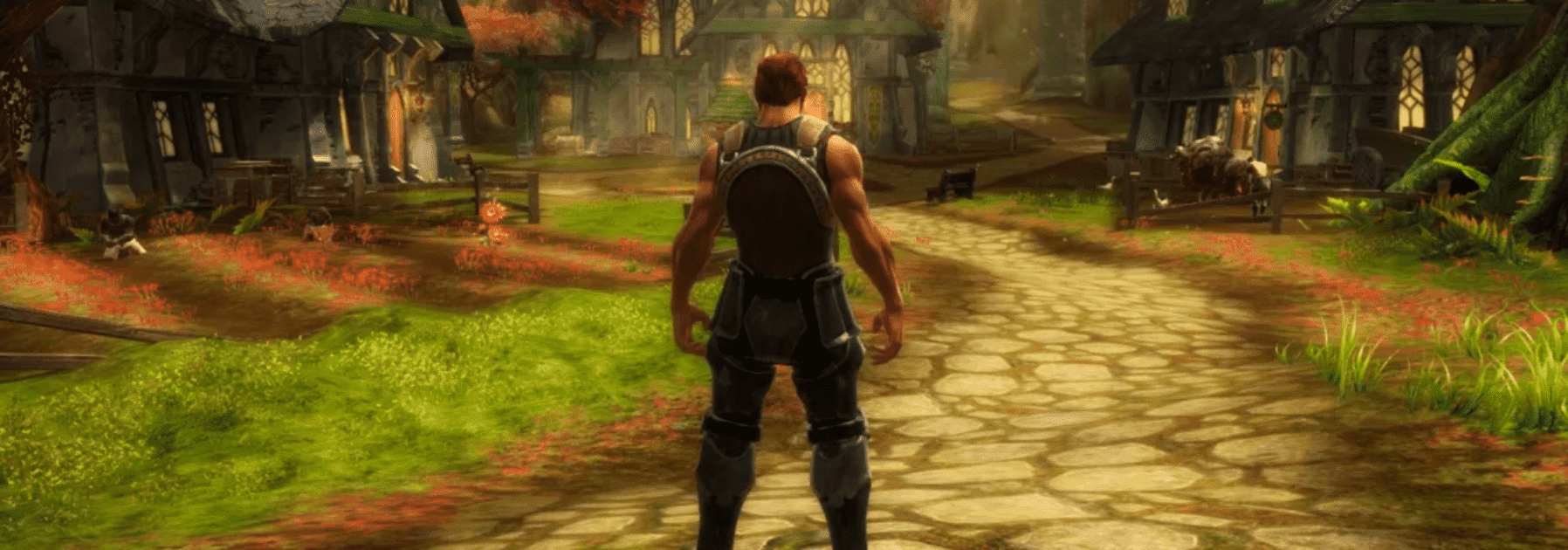Table of contents
Reading time: 10 minutes
RPG games are such a genre in which a gamer associates himself with some fictional character, is engaged in his pumping (technical, magical, any other), fights various monsters, etc. creatures. In the article we will talk about the development of such projects, the difficulties of their creation, and show how to roughly calculate the cost.
How much will it cost
Practically any development of RPG games comes down to choosing an engine, drafting technical specifications, drawing models and characters, programming logic, networking and testing. How much everything will cost is easiest to show on the diagram. At the same time, we will explain the essence of each of the stages. It will be clear from the content of the article.
Please note that the costs of advertising, depreciation of equipment, rental of office space, etc. are deliberately omitted. All this is individual and depends not only on the specifics of a particular project, but also on the size of the company, its location, and many other factors that are difficult to take into account. We can only say that the cost of advertising is comparable to the rest of the price of rpg to order. The cost of developing an RPG in an IT company in the CIS will cost you from 3 million rubles for an MVP and a basic version, up to 40-50 million rubles for a project with AAA graphics.

Graphics
This is the largest sector in our diagram. Half of the entire cost of the project, which is not at all surprising. A project cannot be profitable without high-quality graphics. It should be exactly no worse than its closest competitors. Otherwise, it's not even worth taking. We have to find and lure highly qualified specialists into our staff, pay them the appropriate salary. However, you can do otherwise - contact the outsourcing company. In a very large number of cases, the latter saves both time and money.
Let's show what investments in graphics consist of. 20% for models and animation, creation of locations, plus 10% for the interface. The gamer must want to associate with the hero. If it doesn't, then it's all gone. It is necessary to carefully analyze the preferences of the audience, its moods, tastes. Understand what seemingly insignificant details will attract or, on the contrary, repel the user. After that, the appearance of the hero formed in words must be visually embodied.
There are two problems here. The first, in my opinion the most significant, is that sometimes we ourselves do not really understand what we want. We formulate, somehow in general. Let's say we want the hero to look brutal. The project management has its own ideas about the brutal look, the designer has others. You need to completely discard your opinion and do everything possible to make the hero look brutal in the eyes of the target audience, but there is also not everything is clear. The second problem is that you can’t describe everything in words, the designer has to think out a significant part of the details himself (the character’s hairstyle, what his shield looks like, what the color of the clothes, etc.). It is required to find and hire a professional who will do the last thing as it should, with the greatest chance of project success.

Animation is generally a separate issue. The hero, the secondary characters, also have to move appropriately. The latter is understood not so much as the naturalness of movements, but rather their compliance with their ideas about naturalness among future gamers.
More about locations. They understand the virtual space in which the hero will fight, get all sorts of goodies for himself, etc. When a gamer is involved, he can be said to be transferred to that imaginary virtual reality. It has a very big impact on him. I will give an example somewhat far from the topic of the article, forgive me the reader. If we come to the store and we do not like the atmosphere in it (the lighting is not right, the windows are repulsive with their appearance, etc.), then we immediately leave it. We need to do everything possible so that nothing like this happens in our project. Gamers should not only like the situation, they should be interested in what is around the corner, what is so cool you can see if this monster is cut in half and goes on. I think you understand me.
Now about the interface. If a gamer cannot master it quickly and properly, then he will not succeed. We must not forget that a person came to have fun, and not to suffer with control, to guess what and how to press. There are sometimes a huge number of actions (shooting with various types of weapons, changing them, jumping, various kinds of strikes, etc.). Despite this, the interface should be as intuitive as possible, convenient, and at the same time have a certain feature, stand out among their own kind. It helps that rpg games have been developed for quite a long time. There was something like a general standard for notation where you need to click to perform common operations and actions. If everything is done correctly, then gamers manage to navigate quickly.
Code
This is part of creating RPG games that is not visible to the gamer. It is divided into logic and server. The first accounts for about a third of the investment and about 10% for the server.

In simple terms, logic is understood as the rules according to which one event must occur if one or another condition occurs. For example, an opponent should fall if the gamer's character shot at him and hit.
Looking from the point of view of a person who is not versed in programming, you just wonder how all the events that happen to a character can be written into a program, because a lot of things happen to him, so the task, at first glance, seems practically unsolvable. You can read how to optimize the code in article.
Actually, most of the hero's actions, if you look at them in detail, are quite simple. In particular, the character can stand, run, walk. Programmers should write when possible and when not. An example of impossibility is when a character hits a wall. But even here it should be written what he can do: take the wall by storm, fly over it, destroy it with magic spells, etc.
The more complex the project, the more options. They are not infinite, but huge. Not surprisingly, some projects weigh gigabytes. One or two programmers will not physically be able to write such a number of lines of code in the foreseeable future. But this is not just something to reprint, it must be invented. Even if we take into account that almost no one writes games from scratch now, there are special engines. It's still extremely difficult. The most common of the Unreal or Unity engines. Both have their own advantages and disadvantages. You can read more on the topic, for example, in article.
The situation is complicated by the fact that not all highly qualified specialists are always required. Recall that writing code is only one of the stages of development. The salary is required to be paid every month. Well, if there are orders for several projects at once, then the whole team is in business and pays for itself, but if not ... There are a lot of other difficulties. You can, of course, use agile, but it is almost impossible to more or less accurately plan the budget with it.
Now about the server side. Nowadays, it has become an integral part of any project in the field of programming and entertainment. Gamers want to fight among themselves. They must be given this opportunity. However, it is relatively inexpensive and more than pays for itself.

Testing
As you can see from the diagram at the beginning of the article, spending on it does not exceed 10%. Why so few? The work is not creative, mass-oriented. At the very beginning, for a very crude product, of course, experienced testers are required, but when the main bugs are fixed, ordinary users are addressed. They do not require any special skills, you just need to use the product and point out its shortcomings from the point of view of the gamer. It is clear that such work cannot be expensive. At the final stage of testing, there is optimization for high traffic and server loads. It also has its price, but not high.
General recommendations
Please do not consider them banal and obvious. Everyone seems to recognize the truth of the tips below, but only the authors of successful projects follow to the end.
- Try to be as realistic as possible about your strengths and budget. Otherwise, you risk not completing the project or making it much worse than expected.
- Outsource as much as possible. Do yourself only the work that you can do with high quality and on time.
- Minimize the number of members on your team. Leave only those that bring real benefits and income.
I hope the article helped you, you learned something new for yourself. You might be interested in how to develop shooters or android app. Remember, it is not the one who does not make mistakes (there are none) who wins, but the one who learns from them a lesson for himself. Good luck.



















